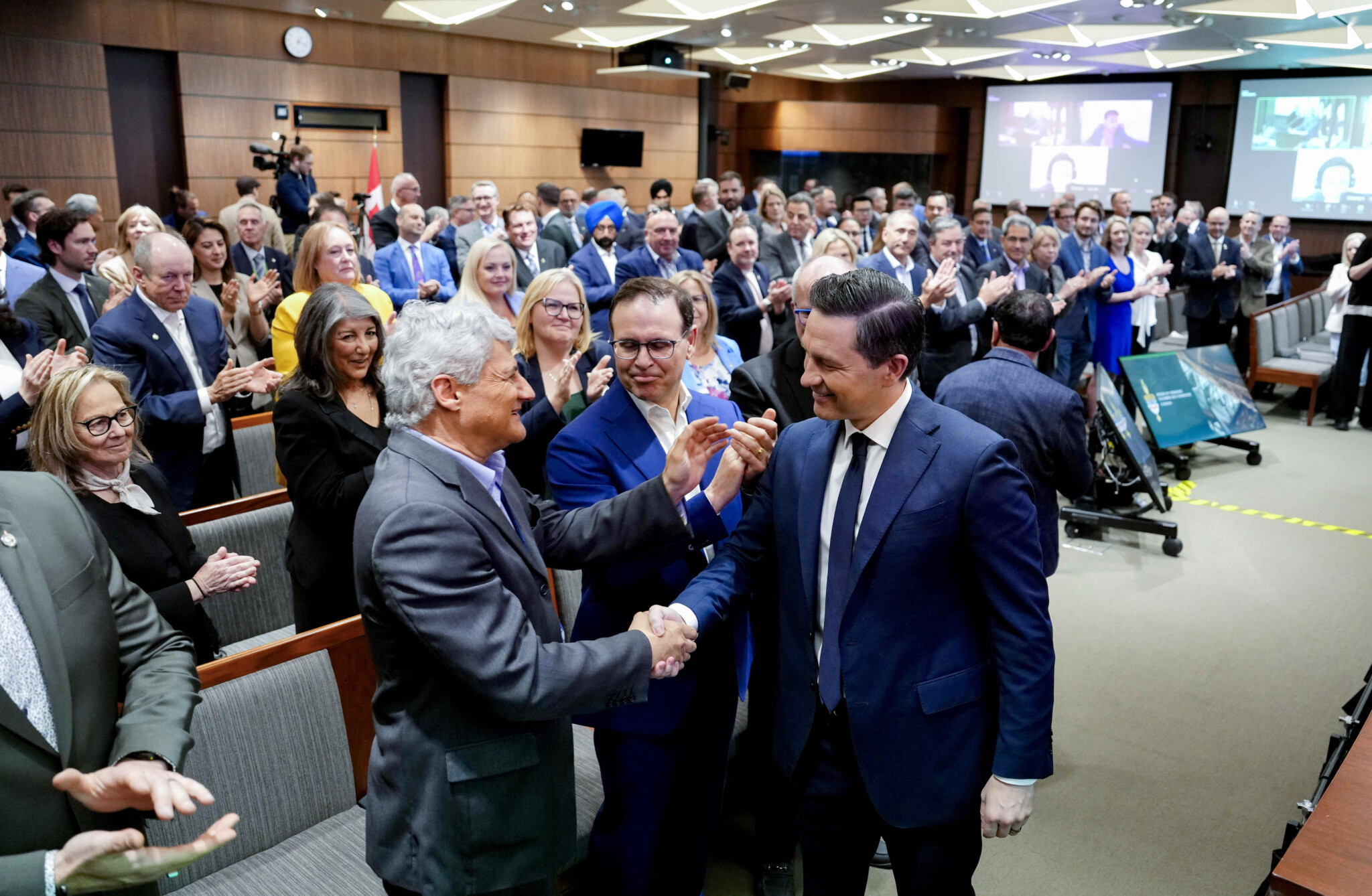‘Media manufactured?’: The Full Press on if journalists created a fictional Conservative coup
Full Press discusses whether journalists fed a grand narrative that would see Conservative leader Pierre Poilievre fall, dives into the CBC’s latest plan for itself, and wonders why Canadian media didn’t touch the most controversial op-ed of the month.
You can listen to this episode on Amazon, Apple, and Spotify.

Program Summary
This is an automated summary. Please check against delivery.
This episode of Full Press delved into three contentious subjects dominating the Canadian discourse: the media’s role in narrating political drama, the national broadcaster’s new strategic plan, and a provocative thesis on how the “feminization” of professions influences workplace culture. The conversation highlighted a recurring theme: a perceived disconnect between media narratives and the complexities they attempt to describe, often leading to public skepticism.
The first segment dissected a flurry of media reports suggesting an internal coup was brewing within the Conservative Party following inflammatory comments from its leader, Pierre Poilievre. The coverage, sparked by an op-ed from a former aide to Stephen Harper, quickly escalated into a narrative of imminent rebellion, complete with speculation about floor-crossers and a shadow cabinet. However, a critical examination suggested this was likely a case of media amplification. The discussion pointed out the reliance on unnamed sources and the journalistic rush to chase an “ethereal” story, which resulted in predictions that failed to materialise. This, it was argued, risks undermining the credibility of the press, especially when language is used to create excitement while providing deniability if the predicted events do not occur. The conversation concluded that a recommitment to neutral standards—eschewing speculation and anonymous sourcing—is the unglamorous but necessary remedy for such episodes.
The focus then shifted to the Canadian Broadcasting Corporation (CBC) and its newly released five-year strategic plan. The plan acknowledges the broadcaster’s failure to connect with significant segments of the population, notably younger audiences, newcomers, and those in Western Canada and rural areas. It pledges to foster more robust public debate and broaden its appeal. While this admission was noted as a subtle shift from previous leadership—which was more focused on combating public “misinformation”—skepticism remains about whether it will translate into tangible change. The corporation’s continued framing of its diversity goals primarily through the lens of identity politics, rather than viewpoint diversity, was cited as evidence that fundamental shifts in editorial direction may be elusive. The assessment was that the CBC appears to view its lack of reach as a customer problem to be solved through better explanation, rather than an institutional one requiring a fundamental rethink of its content and perspective. The true test, it was suggested, will be whether its flagship panels and programming begin to feature a genuinely wider spectrum of political thought.
The final and most controversial topic was a viral essay arguing that the “great feminization” of certain professions, such as law, has fostered a culture of conflict-aversion, ostracisation, and “wokeness.” The thesis, which links the rise of cancel culture to female-dominated social dynamics, was described as a subject of intense private discussion among journalists in Canada, yet it has been almost entirely ignored by the mainstream media. This omission was presented as a case study in the widening gap between private conversation and public debate. While the essay’s hyperbolic claims and correlative arguments were acknowledged as needing rigorous scrutiny, the refusal to engage with the topic at all was criticized as counterproductive. It was argued that by shying away from such fraught discussions, the media cedes the intellectual ground to more extreme online elements. A robust, public debate where the theory’s claims are properly dissected and challenged was proposed as the healthier alternative, one that would demonstrate intellectual spine and a commitment to tackling complex societal changes.
The podcast concluded on a positive note, praising a rare instance of incisive international journalism focused on Canada. An interview with the Prime Minister was highlighted as a model of rigorous inquiry, where the interviewer demonstrated deep knowledge of Canadian policy, from the digital services tax to the theatrical signing of legislation, and asked challenging, unexpected questions. This was contrasted with the superficial treatment Canadian politicians often receive abroad. The segment served as a reminder that well-researched, serious journalism is not only possible but is essential for a functioning public square.
Collectively, the discussion painted a picture of a media landscape struggling with its own power and limitations. The episodes examined revealed a tension between the desire to break stories and the duty to report with accuracy, between the aspiration to represent all Canadians and the inertia of institutional culture, and between the comfort of avoiding controversy and the necessity of engaging with difficult ideas.



Comments (0)